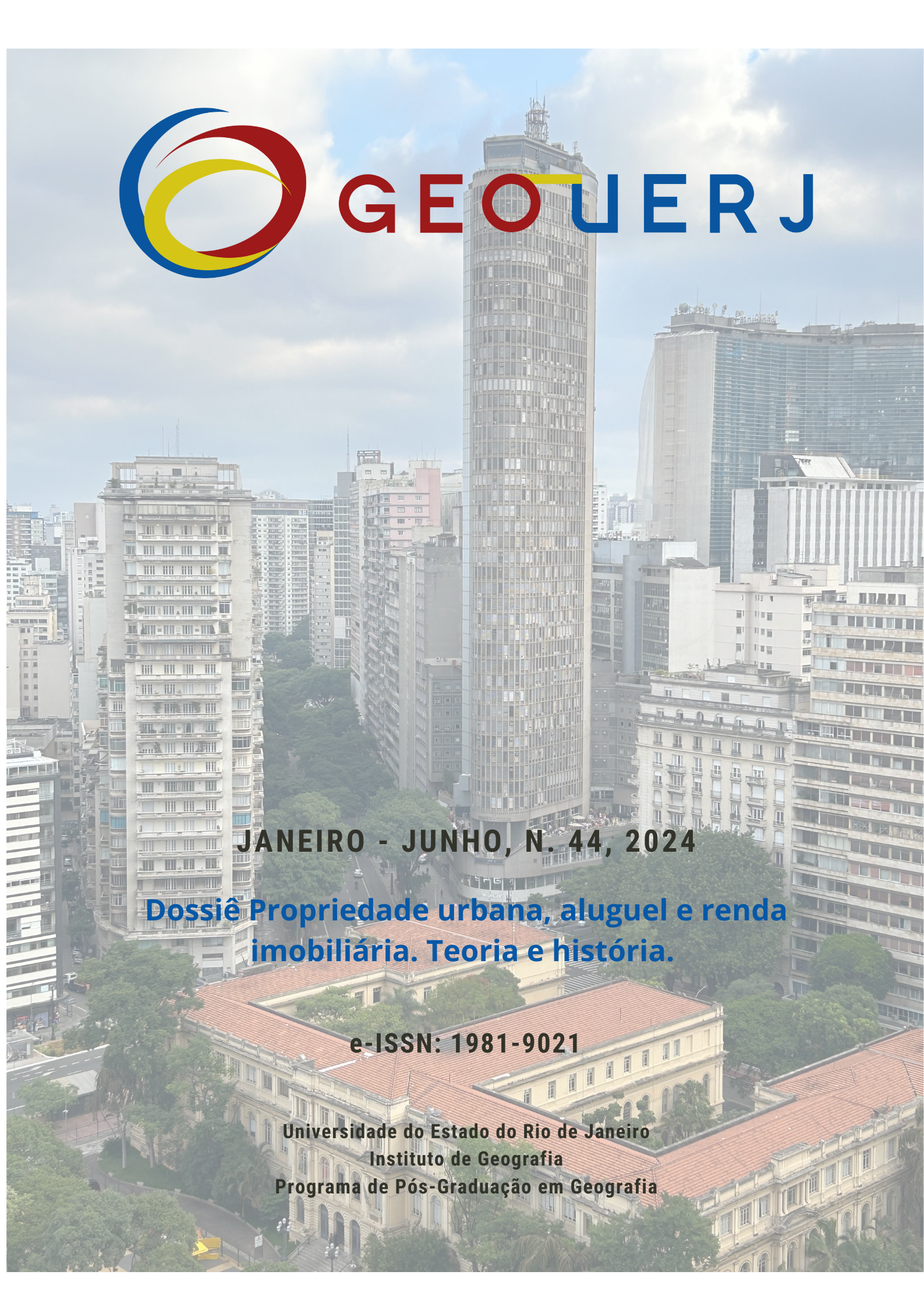IT’S THE PROPERTY, STUPID! BUT HOW CAN WE GET RID OF IT?
DOI:
https://doi.org/10.12957/geouerj.2024.77180Keywords:
Property, radicalization of democracy, common, communism, production of space, stateAbstract
The purpose of our research is to identify paths that lead us beyond property. It is important to us to do more than criticize private property; it is also necessary to think beyond public property. We would like to reach something that goes beyond both. We are not referring either to the private property of capitalism or to the public property of socialism; we refer to the idea of the common in communism.
The understanding of the common requires that we envision a society different from capitalist society. The common is not a third option to the private and the public (and is not equivalent to the latter), but a path antagonistic to capital and its means of production. It is necessary to keep in mind that the ‘realization’ of the common through state property constitutes the very destruction of the common by the state. The notion of property, in and of itself, excludes the common, not only in terms of the use of goods, but also in the realm of production, given that it ratifies a division between owners and non-owners.
The defense of the common carries with it the denial of property, whether it is public or private. This perspective is of real importance, because the institution of private property is the basis for the support of capitalism. Unlike what it may appear as, public property is not a denial of private property, but a collective form of use of private property.Downloads
Downloads
Published
How to Cite
Issue
Section
License
Copyright (c) 2024 Alvaro Henrique de Souza Ferreira

This work is licensed under a Creative Commons Attribution-NonCommercial-ShareAlike 4.0 International License.
The copyright of articles published in Geo UERJ belongs to their respective authors with rights to first publication conceded to the journal. Every time that the article is cited and reproduced in institutional repositories or personal and professional web pages the link to the journal web page must be provided Geo UERJ.

The articles are simultaneously licensed under theCreative Commons Atribuição-Não Comercial-Compartilha Igual 4.0 Internacional.


